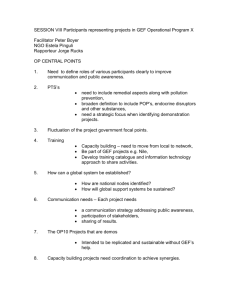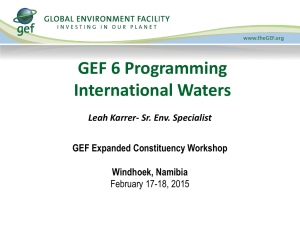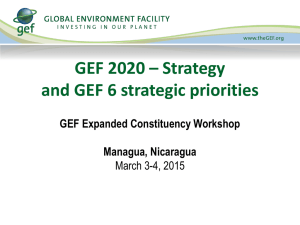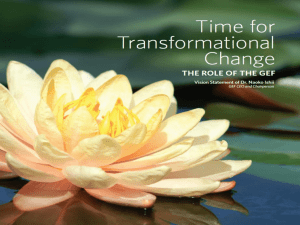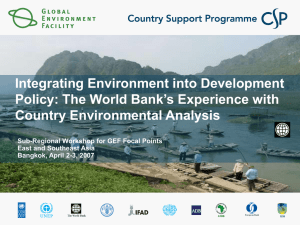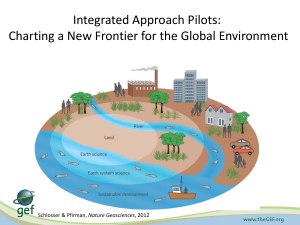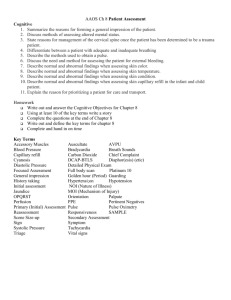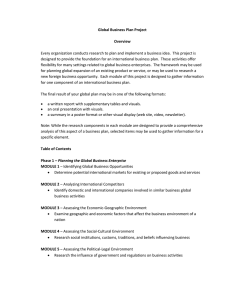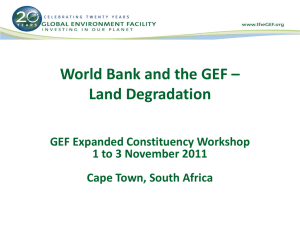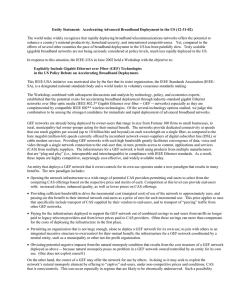Offshore renewable resources
advertisement
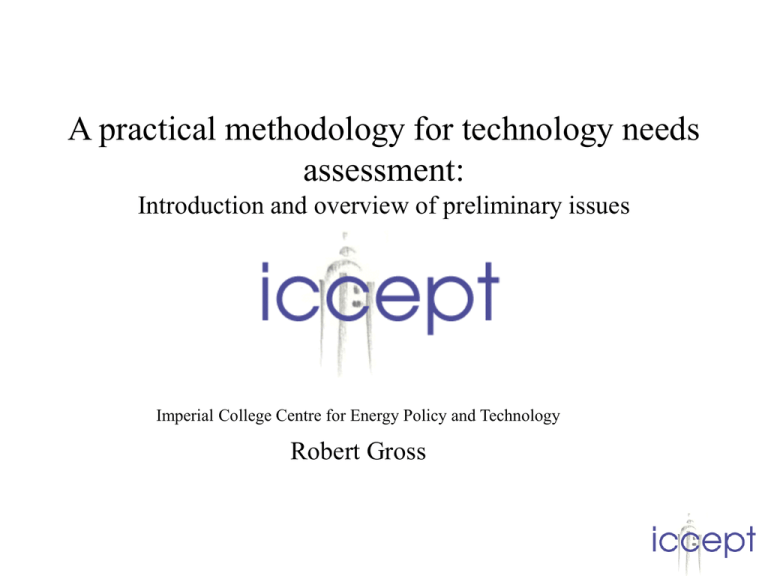
A practical methodology for technology needs assessment: Introduction and overview of preliminary issues Imperial College Centre for Energy Policy and Technology Robert Gross Practical methodology for assessing technology needs under “top ups” • Co-ordinate with countries and partner international organisations to: – Develop outline of practical methodology for needs assessments under “top ups” – Define timetable and mechanism for input throughout the preparation of methodology – Develop and distribute draft methodology to countries • Organise an expert meeting to discuss draft methodology • Revise and finalise practical methodology • Identify needs for technical assistance and training Overview • Introduction to the project team • Introduction to the project • Preliminary issues • Next steps Introduction to the project team • ICCEPT – established to bring the resources of Imperial College to bear on contemporary issues in energy-environment policy • Project team: – Prof Dennis Anderson, Robert Gross – Network of collaborators globally • Input and guidance from stakeholders is key Building on existing activity • The Special Report on Methodological and Technical Issues in Technology Transfer prepared by the IPCC, 2000 (IPCC 2000) • Ongoing activities under the auspices of the UNFCCC on technology needs assessment, in particular a paper by Renmin University, China – ‘Tools and Methodologies in Assessing technology Needs’ (UNFCCC 2002) • A report prepared by the Climate Technologies Initiative (CTI) – ‘Methods for Climate technology Needs Assessments and Implementing Activities: Experiences of Developing and Transition Countries’ (CTI 2002) • Country surveys on technology transfer completed by 52 developing and transition countries undertaking capacity building ‘top up’ activities, undertaken by the NCSP, financed by the GEF and coordinated by UNDP Objectives of the project • To drill down below the process of technology transfer as articulated by CTI report – to analyse and develop a methodology for technology needs assessment • Assess a range of issues and options – resource and technology options, market and institutional issues and policy priorities • Generic issues + case studies – to ensure the diversity of issues facing a wide range of countries are addressed – a major challenge Some issues • One size will not fit all – But generic issues can be addressed – & illustrated through case studies Some issues • One size will not fit all – But generic issues can be addressed – & illustrated through case studies • Information is not enough – Capacity building essential – Networks for action are key • Can we highlight tools and key lessons? What’s in a word? • ‘Methodology’? – Means different things to different people – Suggests that ‘one size fits all’ What’s in a word? • ‘Methodology’? – Means different things to different people – Suggests that ‘one size fits all’ • A ‘handbook’ for technology transfer…. – Not a panacea nor a ‘sausage machine’ – Small, manageable and evolving Experience of mitigation options substantial and growing • Numerous examples • Project will explore best practise through case studies of successful development & transfer • For example…. On and offshore wind, Enormous opportunities: - Close cost competitive - Experience focused on OECD but utilised in many developing countries (China, India, Morocco, Brazil….) Policy environments differ - capital grants, feed-in laws, RPS What works & what doesn’t in varied contexts? A Lot to Build on: GEF Climate Change Portfolio by Type of Project, as of June 30, 2000 Type of Project Enabling activities (field studies, project preparation and other) Energy Efficiency Renewable energy and low carbon Projects: Near-commercial uses a/ entailing incremental costs Sustainable Transport b/ Short-term measures c/ No. of Projects GEF funds, $ millions Total Project Cost, $millions 142 40 82 251 89 1727 52 10 3 25 395 200 15 137 3948 684 26 628 272 1081 7102 Totals Source: Draft report on The GEF Climate Change Program Study by Eric Martinot and Ramesh Ramankutty of the GEF Secretariat, March 30, 2001. Adaptation issues • More limited technical data • Uncertainty • Most issues separate from mitigation – Comparisons and lessons? • Linkages with Policy Adaptation Framework? Preliminary assessment of key issues suggests that the study should focus upon: 1. Understanding key technologies in terms of their fit with: – National policy priorities and the overall goals of development – National resource opportunities and needs – Institutional and market capacities 2. Identifying and Assessing Priorities o o o o o Identification of technologies and practices Assessment of resources and costs Assessing relevance meeting energy needs efficiently Defining strategy for technology development and use Initiating the project and programme preparation process— and establishing financial, economic and environmental criteria o Assessing current policies o Analysing options for intervention and capacity building, including education and training in key sectors 3. The International Link: Technology transfer opportunities & climate policies o Reviewing international policies and facilities that may support national strategies and policies o Network building (a capacity issue) o Economic and market barriers to transfer of key options Next steps • Integrating feedback from this workshop • Contact building for ongoing consultation • Preparation of paper for further consultation in July • Draft final report in September • Project concludes November Key questions • Comments on proposed approach: – Key areas – additional areas for analysis – modifications to the approach • Suggestions for case studies
